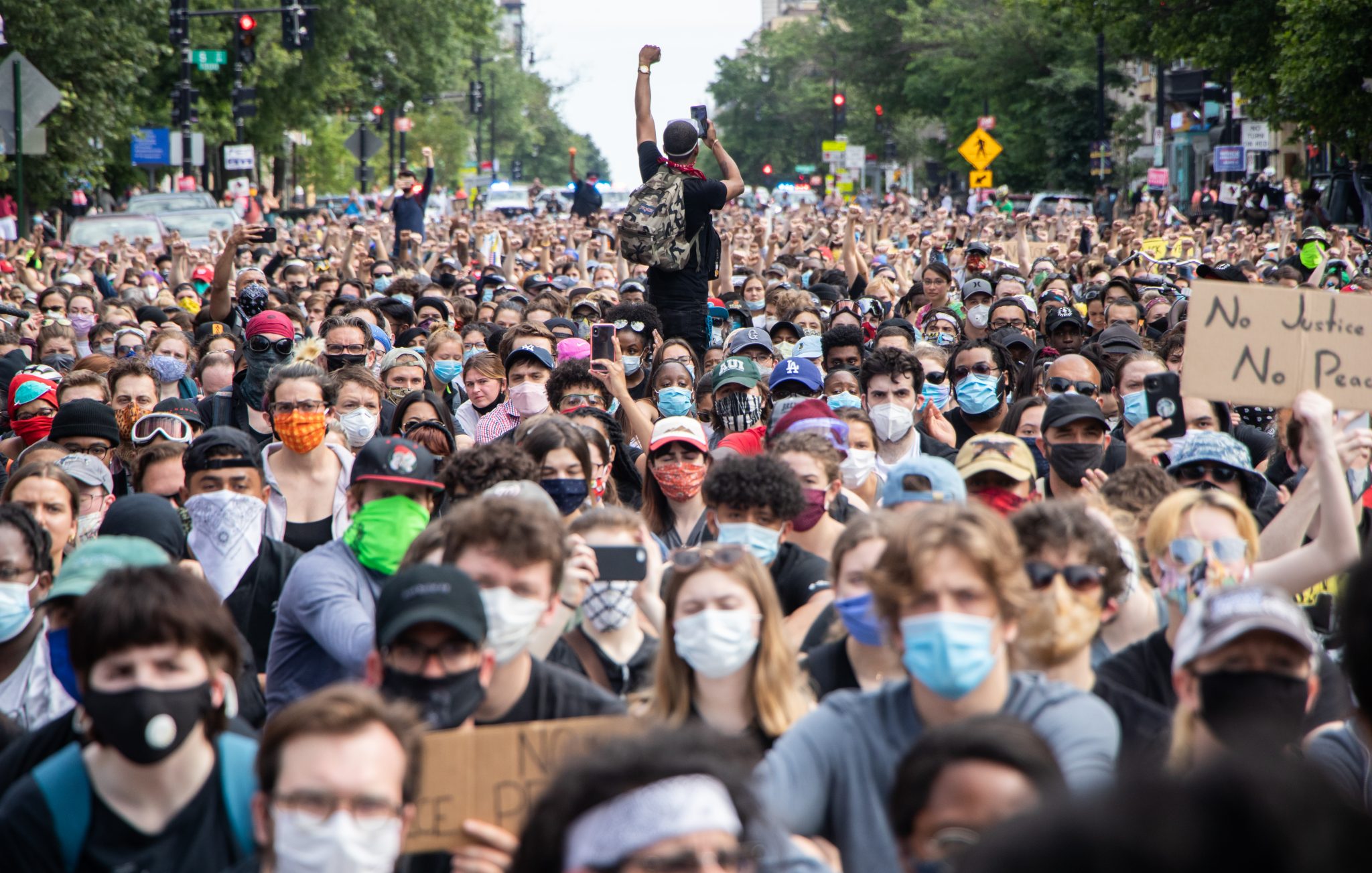Views expressed in opinion columns are the author’s own.
Life has felt like a dystopian movie for the past few months. After news broke about the police killing of George Floyd, a Black Minneapolis man, in May, protesters took to the streets to fight against racism and police brutality. The police retaliated with, ironically enough, more brutality, in the form of tear gas and rubber bullets. And all of this during a worldwide pandemic that has uprooted nearly every aspect of day-to-day life.
The demonstrations sparked by Floyd’s death have since converged into a much larger movement. Although these protests are decentralized across hundreds of cities, they are unified by the passionate young activists marching at the frontlines. This new wave of youth-led activism represents a turning point in the fight for racial justice — one that has the energy to enact and sustain legitimate change.
In Maryland, for example, many demonstrations have been led by high school and college students, some of whom aren’t even old enough to vote. In Baltimore and Annapolis, students took action by organizing marches and peaceful protests. Students from the University of Maryland supported the movement both in person and online by attending demonstrations and voicing their demands for justice on social media.
While young people have historically played a role driving social and political change, three major factors differentiate today’s youth from prior generations of activists.
Generation Z has grown up under the threat of economic recession, climate change and gun violence in schools. Young people have watched these issues go unresolved as legislators sit back and offer little more than “thoughts and prayers.” And now, here we are in 2020, still fighting against the same racism from 50 years ago. They are understandably fed up with the system. And when the adults won’t listen, what’s the solution? Lead your own protest.
Today’s young protesters are also a diverse group of people who recognize the power of solidarity. It’s not just Black people fighting for racial equality — people of all backgrounds are advocating for systemic change, whether they’re directly impacted by racism or not. In small towns and rural areas, for instance, white youth are acting as allies by organizing small-scale protests. This is a significant divergence from the protests of the 1960s, when civil rights marches were primarily led by Black Americans. With many more racially diverse and widespread protests taking place today, it’s more difficult for political leaders to demonize protesters and escape responsibility like they have in the past.
Similarly, the rise of social media fosters a sense of interconnectedness within the movement. Of course, most people support racial justice in principle, but technology allows for new ways to act upon those values. Your typical high school student can transform into a political activist by sharing important news stories on Twitter, posting resources and fundraisers on Instagram and organizing marches on Zoom. Not only does this make it easier to spread the message, but it also encourages people to mobilize with their peers instead of sitting on the sidelines.
These demonstrations, led by a new generation of activists, have not been futile. Over the past few weeks, lawmakers have moved beyond just discussing racism — now, they’re actually making changes. In Washington, D.C., the D.C. Council passed emergency legislation that included banning the use of chemical irritants or rubber bullets on peaceful protesters. Similar restrictions on the use of police violence, such as choke holds, have been passed in other major cities such as Seattle, San Diego and Denver.
While we’re still far from completely defunding the police, these reforms are a positive sign that lawmakers feel the pressure. This is just the tipping point in the fight for justice. We still have a long way to go, but it’s inspiring to think that perhaps future generations won’t have to fight so hard for their fundamental rights.
Allison Cochrane is a rising senior biology major. She can be reached at allisonc@umd.edu.



